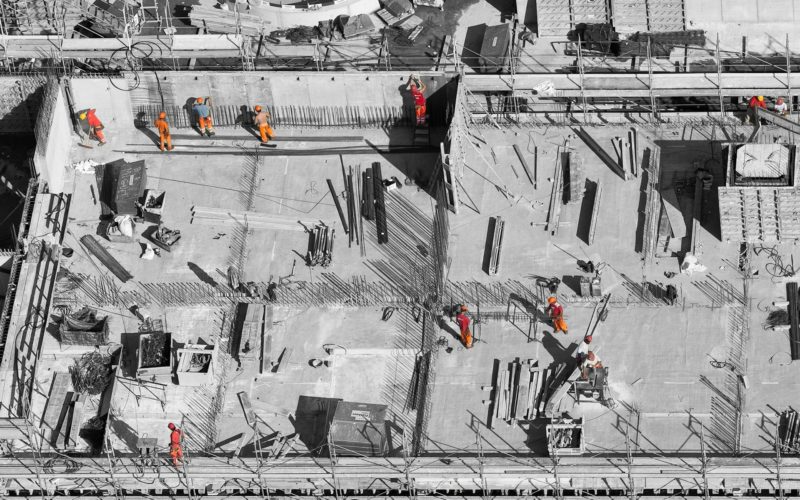The construction industry in America generated nearly $2 trillion annually in 2023 and is projected to continue growing, reaching over $2.2 trillion by 2027. Hence, the demand for construction materials is on the rise. Transporting the building materials to the sites requires safety protocols and efficiency. Most bulk equipment and materials are transported by truckload shipping. In fact, the trucking sector is responsible for transporting 71% of the freight in the USA. Concrete, lumber, and roofing materials are reported to be associated with home goods and furniture. Most of the trucks belong to fleets or are owner-operated.
Develop a logistics plan
A logistics plan involves organizing the transport of equipment and materials to and from construction sites, referred to as inbound and outbound logistics. The company should develop a plan that focuses on safe and timely delivery. For example, if the materials arrive late, the whole construction project will be postponed. This can lead to financial losses for the company.
Managing all the aspects can be pretty challenging in complex projects. Imagine building a bridge or a road. The details must be perfectly managed for the project to flow seamlessly.
Regulatory compliance
Trucks transport the majority of construction materials and equipment in the USA. Compared to other types of transport, trucks can easily access various construction sites.
The regulations are there to improve safety and order, solving the problems in this industry. The Department of Transportation Federal Motor Carrier Safety Administration (FMCSA) is the main regulatory body for this industry in the US. If your trucking company transports construction materials, you must check the regulations. One is related to the weight, capacity, and truck size. The roads and highways have different weight restrictions to avoid damaging the surface. In addition, the driver should obtain a proper CDL for the class of vehicle they are operating.
Hours of service is another regulation that trucking companies should follow. The authorities have strictly defined how many working hours a trucker can work to avoid fatigue impacting their driving ability.
Construction materials
Construction materials fall into various categories, each with unique requirements companies must follow. You have products like roofing, concrete mix, bulk materials, and furniture. Every type of freight has different safety and storage requirements.
Roofing
Roofing is bulky and heavy, which makes the transportation process more challenging. They come in different shapes and sizes, so special tie-down techniques are implemented to keep them safe.
Bulk construction materials
Lumber, building insulation and concrete mixes are a great example of bulk construction materials. For this type of freight, companies usually use bins and tarped-in B-Train trailers. In addition, bulky equipment such as aerial equipment, air compressor equipment, power generation and others require a unique approach.
Furniture and household goods
When the construction process is done, next comes transporting the furniture and household goods. These items are delicate and require special handling. Enclosed vans or trailer units are commonly used for household goods, keeping them safe and secure. A proper packaging is another crucial aspect that prevents damage and makes sliding easier.
Mixtures
Concrete mixtures are a crucial part of the construction process. It is a mixture of cement powder, aggregates, and water that produces a chemical reaction. And don’t forget that it needs to be delivered on time and under the right conditions otherwise it won’t work. Cement mixing trucks are used to report the mixes, with a rotating bin that prevents early curing. The process requires additional equipment such as a concrete pumper truck, vibrator, power trowels and concrete core drills.
Wrapping Up
Transporting construction materials requires a well-thought-out approach that accounts for safety, regulatory compliance, and the specific handling needs of each material type. From heavy-duty equipment to delicate household goods, a reliable logistics plan can prevent costly delays and ensure smooth project progression. Compliance with transportation regulations, careful handling of bulk and sensitive materials, and adherence to time-sensitive delivery windows are essential to meeting project demands effectively. As the construction industry grows, companies that prioritize efficient, secure, and compliant transportation will be best positioned to meet the increasing demand for timely and safe material delivery.












